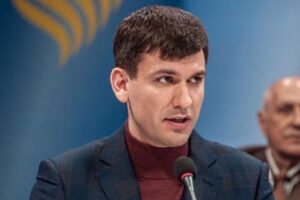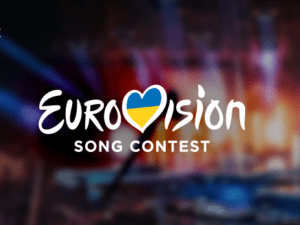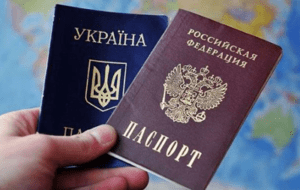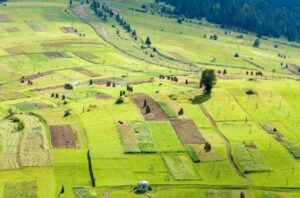
Business should talk not only about compensation for the damage caused by the aggressor, but also about compensation for the harm caused – lawyer
Business should talk not only about compensation for the damage caused to it as a result of the aggression of the Russian Federation, but also about compensation for all the harm caused, Gennady Borisichev, founder of the Concor law firm, believes.
“Please note that damage is only part of such a concept as harm, in particular, harm caused by Russian aggression. Damage includes not only direct losses, but also additional costs, lost profits, and there is also moral damage. For example, for legal person to really prove the existence of moral damage caused, in particular, due to the loss of non-property assets, goodwill and others,” he told the Interfax-Ukraine agency.
The lawyer noted that for each of these types of damage there are specific features of fixation – the collection of evidence about the existence of the fact of damage and its size. At the same time, it is important to clearly establish all types of damage caused and prove both the very fact of the existence of damage and its size.
“It is important to consider and prove all components of the damage caused in a complex, that is, in interconnection. It is a mistake to break down the fixation and assessment of the amount of damage by separate objects of one business that suffered damage, since a business (enterprise) is a property complex, and includes both property, and non-property assets,” he said.
Borisichev drew attention to the fact that when assessing the damage, it is necessary to follow the Government Decree No. 326 of March 20, which establishes the procedure for determining the damage and damage caused to Ukraine as a result of the armed aggression of the Russian Federation.
The lawyer emphasized that in the near future it is expected to adopt an appropriate methodology for assessing harm and approving acts to fix it.
In addition, Borisichev noted that the need for a correct legal qualification of the actions that caused damage, which will affect the prospects for compensation.
“War is not an “event” like a natural disaster or accident, and not a private conflict, as a result of which harm is caused. Harm caused to a business, just refers to such grave consequences of war. Which in turn entitles a business to receive the status of a victim “That is, the use of such a legal approach allows us to involve the law enforcement agencies of the state in fixing the damage. This method of fixing the damage when assessing evidence both in Ukraine and in foreign jurisdictions will have certain advantages and allows you to attract the state to the side of the victim,” the lawyer explained.
Borisichev drew attention to the fact that the problem of compensation for damages caused by Russian aggression is not a common well-established practice for law firms. At the same time, an important point is the lack of a mechanism for enforcing decisions on claims for damages against the Russian Federation.
“This problem is extraordinary and has not yet been solved anywhere in the world, it requires the development of law enforcement practice. Ukrainian courts have positive experience in claims against the Russian Federation, there is positive experience in arbitration, but an important nuance has not yet been taken into account – the mechanism for implementing such decisions “, – he said.
Borisichev clarified that earlier the Konkor law firm won the right to the status of a victim as a result of Russian aggression several years before the start of the second hot stage of the war on February 24.
“Now our developments and experience in this area have become relevant and unprecedented,” he said.
The lawyer noted that among foreign jurisdictions, the most promising for the restoration of the violated rights of war victims are the jurisdictions of Britain, the United States and Canada.
He said that the law firm will focus on the development and implementation of the legal mechanism in Ukrainian courts.
Borisichev noted that at present, the current issues are the adoption in Ukraine of a law on compensation for damage to victims of Russian aggression and the creation of a common accessible mechanism for all categories of victims in Ukraine to obtain the status of victims and compensation for damage.

Yesterday, Bitcoin once again came close to the critical level of $20,000 per 1 BTC. Even the record-breaking increase in the interest rate of the Fed did not save the main cryptocurrency from falling. However, it could not save, since cryptocurrencies are a fairly young investment asset, which has not yet been affected by transition periods and changing phases of economic growth.
The crypto market continues to develop according to its own rules, remaining a speculative product, the high volatility of which attracts a large number of traders who are ready to take risks for the sake of quick earnings. Most often, such traders massively buy cryptocurrency during the growth phase and start to get rid of it just as massively when the market falls, which stimulates a further collapse.
But this time the situation is somewhat different. Many analysts are talking about the beginning of the “darkest time for crypto” in its entire history. The traditional opponents of bitcoin have also revived. Thus, the famous financier Warren Buffett recently stated:
“If I were now offered to buy bitcoins at $25, I would not take them. What should I do with them then? I would have to sell them back to you later. This is a dead end.”
And he added that he doesn’t know if bitcoin will rise or fall next year, in five or ten years, but he knows for sure that he does not produce anything.
The Open4business publication turned to Igor Stakovichenko, an expert in economics and finance, with a request to comment on the situation in the cryptocurrency market. According to the economist, the problem of the lack of a real resource and production base for digital assets has become especially acute in recent months. This is due to the fact that Russian aggression in Ukraine disrupted supply chains and led to higher prices for real sector products in the global economy.
“The fall in the capitalization of the largest companies and the crisis in the stock market naturally led to the collapse of the cryptocurrency market, as many investors considered this asset too risky,” the financier notes.
Stakovichenko stressed that in the current situation, the fall of the bitcoin market below 22,000 launched a new, even deeper “bearish phase” of the cycle, as it greatly shook the position of long-term holders of the asset. The long-term holders, who had held their positions during the last drops, could not stand it and started dumping the cue ball at the lowest prices.
“This shook the whole structure, and both technical and macroeconomic indicators today indicate a possible fall of the main cryptocurrency to 16,000 or even lower,” the expert said.
However, according to Stakovichenko, it is still too early to bury bitcoin, as “whales” (investors owning more than 10,000 BTC) still continue to accumulate this digital currency, which may indicate the possibility of growth in the medium and long term.
BITCOIN, CRYPTOCURRENCY, CRYPTOCURRENCY_MARKET, EXPERT, FINANCE, STAKOVICHENKO, ИГОРЬ_СТАКОВИЧЕНКО

Minister of Culture and Information Policy of Ukraine Oleksandr Tkachenko says Ukraine does not agree with the nature of the decision by the European Broadcasting Union regarding the impossibility of holding the Eurovision 2023 international song contest in the country.
“In response to the published statement of the European Broadcasting Union on the impossibility of hosting Eurovision – 2023 in Ukraine, we want to emphasize the following. Ukraine does not agree with the nature of such a decision – when we were confronted with the fact without discussion on other options. But we strongly believe that we have every reason to hold further negotiations in order to find a joint solution that will satisfy all parties,” Tkanchenko said on Facebook on Friday.
The minister said Ukraine won Eurovision and have fulfilled all the conditions within the deadlines for the process of approving its holding in Ukraine – we have provided answers and guarantees on safety standards and possible venues for the competition.
“Hosting Eurovision – 2023 in Ukraine is a strong signal to the whole world that it supports Ukraine now. We will demand to change this decision, because we believe that we will be able to fulfill all the commitments, as we have repeatedly empathized it to the European Broadcasting Union. That is why we demand additional negotiations on hosting Eurovision – 2023 in Ukraine,” Tkachenko said.

The Cabinet of Ministers of Ukraine has abolished the visa-free travel with Russia from July 1, Prime Minister Denys Shmyhal said.
“We are finally breaking ties with Russia. To counter the unprecedented threats to national security, sovereignty and territorial integrity of our state, the government, in pursuance of the order of the President of Ukraine, has just decided to terminate the visa-free agreement with the Russian Federation,” Shmyhal said on the Telegram channel on Friday.
According to him, from July 1, 2022, Russians will not be able to enter Ukraine without obtaining a visa.

Ukraine is introducing a visa regime for Russian citizens, President of Ukraine Volodymyr Zelensky told the Telegram channel on Friday.
“As part of countering unprecedented threats to national security, sovereignty and territorial integrity of our state, I proposed to the Cabinet of Ministers to work out the issue of revising the regime of entry of Russian citizens into the territory of Ukraine,” he wrote.
“And today the Cabinet of Ministers must adopt this important resolution ‘On the termination of the Agreement between the Government of Ukraine and the Government of the Russian Federation on visa-free travel of citizens of Ukraine and the Russian Federation and the application of certain international treaties of Ukraine with the Russian Federation,’” the president also wrote.
According to him, “according to the planned decision of the Cabinet of Ministers, from July 1, 2022, Ukraine will introduce a visa regime for entry for citizens of the Russian Federation.”

Turkey plans to lease land from other countries for crop production, which will help the country overcome the food crisis caused by Russian aggression against Ukraine and the consequences of the COVID-19 pandemic.
Turkey is considering leasing agricultural land in 10 countries, including Ukraine, Latin America and Africa, Turkish Minister of Agriculture and Forestry Vahit Kirişci told Türkiye.
“Part of the negotiations with 10 countries, including Ukraine and some countries of Latin America and Africa, ended with an agreement, and contacts with some of them continue. Agricultural products that cannot be produced in Turkey for climatic reasons will be grown on the leased lands or the production of which is insufficient,” the publication said.
It is specified that Turkish private business will also be involved in projects on leased lands. For example, in Sudan, Turkey will grow pineapples, mangoes, avocados, rapeseed, sunflowers, corn, cotton, sesame, sugarcane and alfalfa, the production of which is insufficient in Turkey.
Türkiye specifies that the leased areas will focus on the cultivation of plants that can be used in the production of animal feed. In addition, it is planned to establish the production of wheat there, which will be processed in Turkey and then exported in the form of biscuits, pasta and bulgur.
“We want to bring modern agriculture there. We want to produce in untouched agricultural areas. There are very serious untouched areas, especially in southern Africa. We are able to grow plants in these regions,” the Turkish minister was quoted as saying.